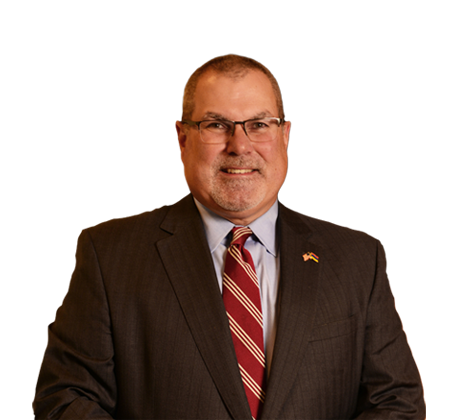On March 21, 2020, Governor Murphy signed Executive Order No 107 directing New Jersey residents to shelter in place. EO 107 stated that:
All businesses or non-profits in the State, whether closed or open to the public, must accommodate their workforce, wherever practicable, for telework or work-from-home arrangements. For purposes of this order, “telework” means the practice of working from home or alternative locations closer to home through the use of technology that equips the individual to access necessary materials. ... To the extent a business or non-profit has employees that cannot perform their functions via telework or work-from-home arrangements, the business or non-profit should make best efforts to reduce staff on site to the minimal number necessary to ensure that essential operations can continue. Examples of employees who need to be physically present at their work site in order to perform their duties include, but are not limited to, law enforcement officers, fire fighters, and other first responders, cashiers or store clerks, construction workers, utility workers, repair workers, warehouse workers, lab researchers, information technology maintenance workers, janitorial and custodial staff, and certain administrative staff.
(EO 107, paragraphs 10 and 11).
The guidance from the Murphy Administration at that time specified that:
Non-retail businesses may stay open, but must accommodate their workforce, wherever practicable, for telework or work-from-home arrangements and must abide by enhanced mitigation requirements. ... For example, professional service firms -- such as law firms, accounting firms, etc. -- may continue to operate, but must accommodate their employees working from home. If a business or nonprofit has employees that must be on site, it must reduce staff on site to the minimal number necessary to ensure critical operations can continue.
The practical effect of the Order and the guidance was that most professional offices essentially shut down normal operations and had most of their staff work from home. Many offices maintained some support services at the office on a daily basis but a large majority of its staff worked from their homes. Some firms were better able to operate in this environment than others owing mostly to how well advanced their firms were in their technical evolution. HR departments set about to maintain firm-wide esprit de corps over a workforce that was geographically spread out and isolated. Zoom calls boomed and the marketplace of ideas that generally operated in the hallways and water coolers has suffered somewhat. While many people adapted to the work-at-home environment, others pined for the social interaction and human element that exists only when people come together to carry out their work.
On May 18, 2020, the Governor set forth a staged approach to reopening the State. At that time, the guidance released provided that "Phased-in businesses and activities, with adherence to safeguarding and modification guidelines" may include "critical in-office work" will not be permitted until sometime in Stage 3. In Stage Three, higher-contact activities will restart with significant safeguarding. https://nj.gov/governor/news/news/562020/approved/20200518a.shtml
As a result, since the State remains in Stage 2 of the reopening plan, offices are encouraged to have those who can work remotely continue to work remotely. Thus, employers should only require those whose presence is physically necessary to report to the office. Prior to a determination that the State is in Stage 3, New Jersey offices remain essentially closed. The Governor and Health Department have remained consistent in their admonitions about indoor, sedentary activities being among the most dangerous. The guidance from the Murphy Administration remains that:
Precautions that apply across all stages include: Work that can be done from home should continue to be done from home. Clinically high-risk individuals who can stay at home should continue to do so. All residents and businesses should follow state and federal safeguarding guidelines: wash hands; wear masks in public; respect social distancing; minimize gatherings; disinfect workplace and businesses; and no mass gatherings.
The Governor rescinded the shelter in place order on June 9th via Executive Order No 152. He later increased the indoor gathering capacity limits on June 22nd to 25% capacity of the rooms in which they will take place, with a maximum of 100 persons. However, the indoor gathering limits was not intended to apply to office settings. Rather, it was slated to apply to "Gatherings of individuals, such as parties, celebrations, or other social events". Executive Order No.156; https://faq.business.nj.gov/en/articles/3820777-which-businesses-may-be-open-and-what-guidelines-must-be-followed. EO 156 recognized that "the restrictions on indoor gatherings that remain in place may be more stringent than the restrictions that are in place for indoor retail settings, because in such retail settings individuals neither congregate in large groups nor remain in close proximity for extended periods, which are factors that have been linked to the increased risk of COVID-19 transmission."
The practical upshot of all of this order wrangling is that the original guidance for businesses remains intact: "If your business is not a retail business, you have been allowed—and may continue—to operate, but you must let your workers work from home whenever possible. The U.S. Department of Labor has guidance on the Fair Labor Standards Act pertaining to your obligations to employees regarding telework. If you have employees that need to be on site, you must keep them to the minimum number needed for critical operations; examples of these include cashiers, store clerks, construction workers, repair workers, warehouse workers, lab researchers, custodial staff, and certain administrative staff. Any building open to workers must follow minimum cleaning protocols as described in Executive Order 122." https://faq.business.nj.gov/en/articles/3820777-which-businesses-may-be-open-and-what-guidelines-must-be-followed
When the restrictions on returning are loosened, employers will have to consider who to begin bringing back and under what restrictions. Considerations such as an employee’s susceptibility to the virus, comorbidity factors, the ability to remain productive in a remote work environment and the overall perception by the workforce that the employer is looking out for their safety will all be factors employers should be considering now. What physical changes need to be made to the present office environment to render it safe and what rules will be put in place for not only the workforce, but visitors to the workplace? All of these factors will shape the workplace for the foreseeable future and employers need to be considering all of the variables that will shape the workplace going forward.
Please contact Scott Ohnegian, Mary Kay Roberts, or Charles McKenna if you have questions about how this guidance applies to you.
Please visit Riker Danzig’s COVID-19 Resource Center to stay up to date on all related legal issues.




